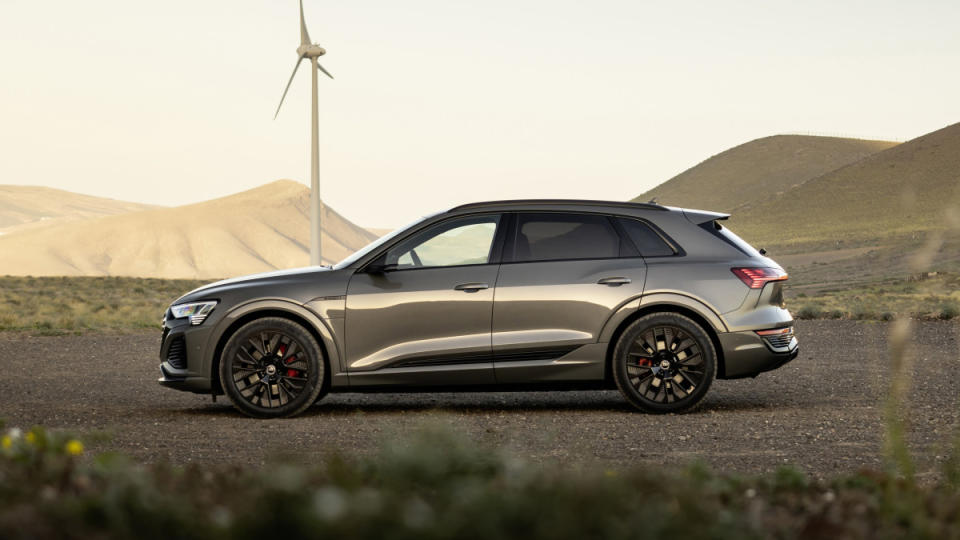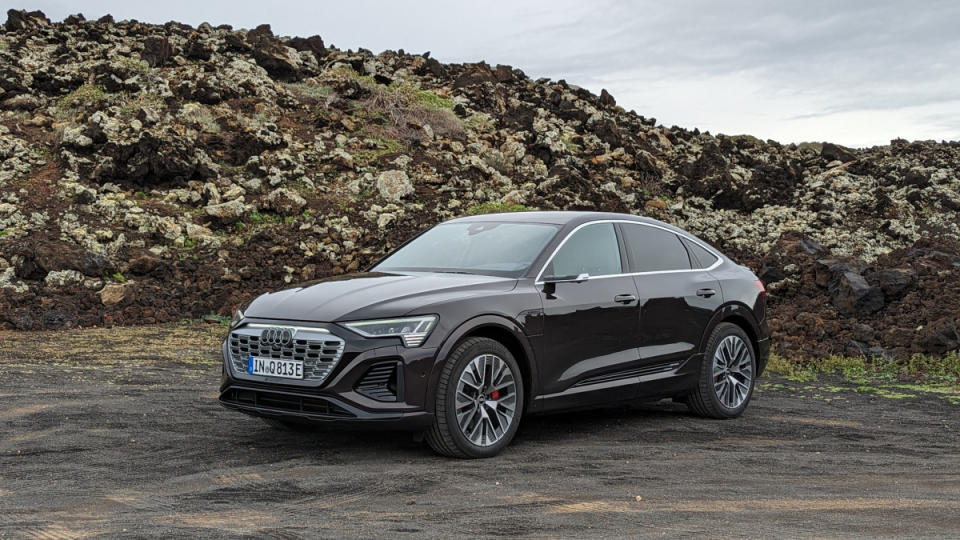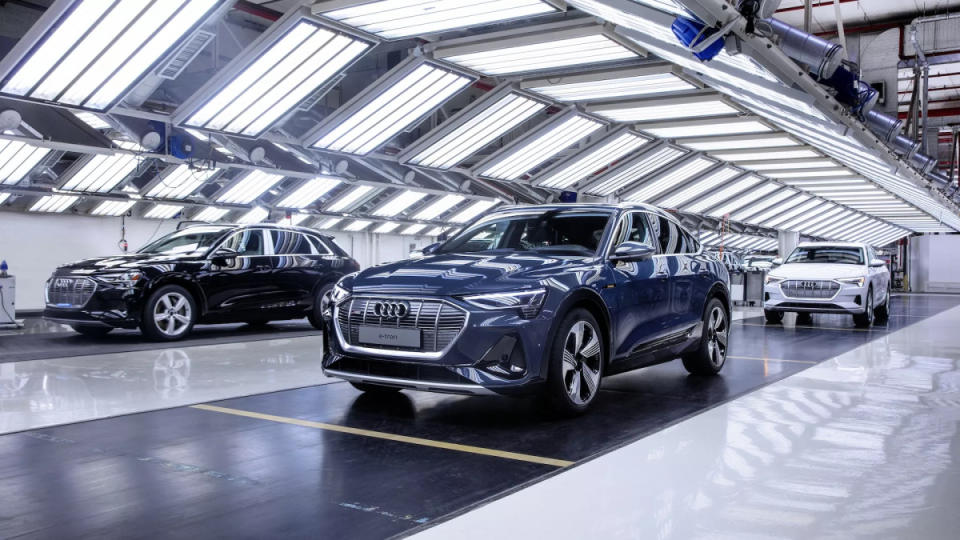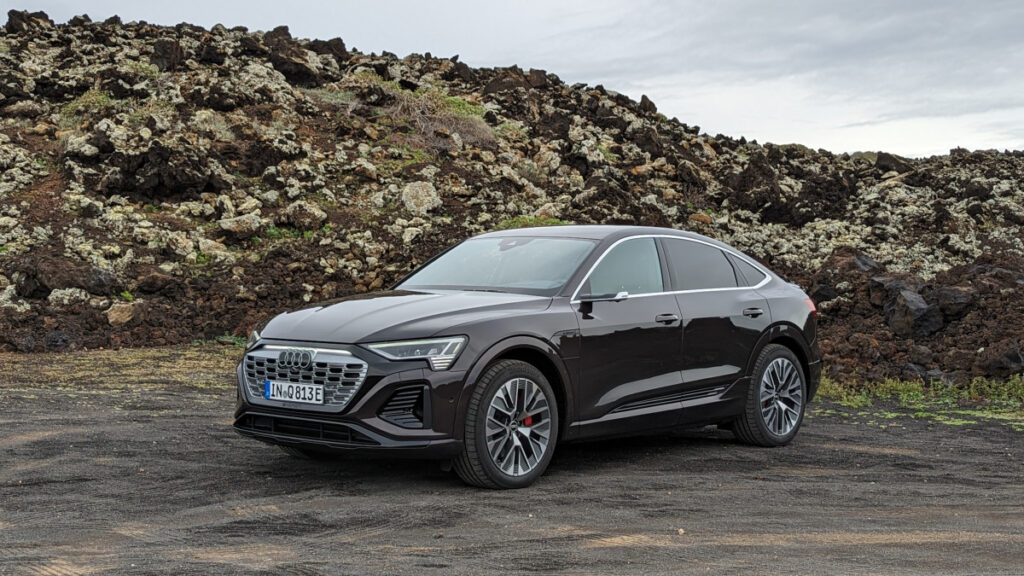Volkswagen has had its fair share of financial issues. The German automaker just finished negotiating terms with striking workers over the potential closing of three production facilities in Germany, and they aren’t the only ones having financial woes. Audi, another brand under the Volkswagen Group umbrella, recently announced plans to close their production facility in Brussels, Belgium.
2024 Audi E-Tron GTAudi
Related: Cybertruck hype fades: Once hot, now not, Tesla’s pickup sits on lots
The facility’s closure marks the end of the Audi Q8 e-tron and Q8 e-tron Sportback
The Audi Q8 e-tron originally arrived as the Audi e-tron for the 2019 model year, but it wasn’t until 2024 that the German brand’s first mass-produced electric car took on the Q8 moniker. The luxury EV received a refresh for the 2022 model year, but that updated design is now likely to be short-lived. With the Belgian factory scheduled to shut down by 28 February 2025, the Q8 e-tron and its Sportback sibling are going along with it.
Audi’s production facility in Brussels employs around 3,000 people and opened its doors in 1949. It has a total capacity of 120,000 vehicles per year, but in 2023, just 49,001 examples of the Audi Q8 e-tron were sold.

2024 Audi Q8 e-tronAudi
“The decision to close the Brussels factory is painful. Personally, it was the toughest decision I’ve ever had to make in my professional career,” Gerd Walker, Audi board member and head of production, told Reuters.
Audi originally planned to go all-electric by 2033, but now CEO Gernot Döllner says the brand is staying “flexible.” Bentley, another VW subsidiary, has pushed back its EV plans twice, first to 2033 and then to 2035. The core Volkswagen brand originally set a goal of an all-electric lineup by 2033 but recently said the current-generation Golf would be around until 2035.
Related: EV sales in Europe are growing—with one big Tesla-sized exception
You can still get an Audi Q8 e-tron, but not for long
Production plans have yet to be finalized, and since the final date of operation for the Brussels plant is 28 February 2025, there’s still time to get a Q8 e-tron in limited supply.
The Audi Q8 e-tron doesn’t change much between the 2024 and 2025 model years, with a few minor tech and design enhancements on the docket. The electric SUV boasts a 106 kWh battery that’s good for a 285-mile range, while the Sportback version gets a bump to 300 miles thanks to its sleek design. Performance comes in at a healthy 402 horsepower and 490 lb-ft of torque thanks to its dual electric motors.

2024 Audi Q8 e-tron
Zac Palmer
View the 11 images of this gallery on the original article
While the Audi Q8 e-tron is a solid competitor in the all-electric luxury SUV segment, other models offer higher range. The Tesla Model X features a 335-mile range, while the base Rivian R1S offers 270 miles on a single charge or 410 miles when equipped with the largest battery.
Final thoughts
The closing of a production facility and thousands of people losing their jobs is never a good thing. For the most part, VW Group’s problems stem from falling sales in China as Chinese automakers gain momentum. Audi is just the latest automaker to face financial issues and take drastic measures as a result. Thankfully, Volkswagen managed to strike a deal with their union to keep all 10 of its German facilities open and workers employed until 2030.

2024 Audi Q8 e-tronAudi
The Audi Q8 e-tron isn’t a bad electric SUV by any means, but just 49,001 models were sold last year. That’s a little over a third of the facility’s production capacity, so it’s clear why it was cut. With Audi pushing back its EV plans, what isn’t clear is whether there will be another electric model built at a different facility to replace it.
Related: Volkswagen strikes deal to avoid German plant closures
Read the full article here
